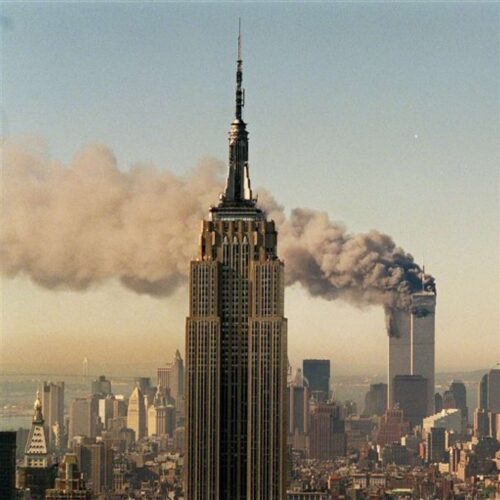Introduction
Almost 10 years have passed since Osama bin Laden orchestrated the worst terror attack on American soil. A pursuit that began under President George W. Bush was finally wrapped up under his successor, Barack Obama, who told the world Sunday night that bin Laden was killed.
The relief of Americans was palpable as hundreds descended on the White House to chant “USA! USA!” as Obama spoke. To the thousands of extremist bin Laden followers overseas, chants in the coming days will likely carry a different tenor. America’s war against the al-Qaida terror network is not over, even if its head has been stricken.
“For over two decades, bin Laden has been al-Qaida’s leader and symbol, and has continued to plot attacks against our country and our friends and allies. The death of bin Laden marks the most significant achievement to date in our nation’s effort to defeat al-Qaida,” the president said.
A look at some of the winners and losers in the last decade:
Winner: President Obama cherishes the extraordinary moment to announce the death of America’s most wanted terrorist for 10 years.
Loser: Bush, who chased bin Laden for eight long years and went home to Texas empty-handed.
Winner: Al-Qaida, which has multiplied into an international terrorism organization whose threat will hardly diminish with bin Laden’s death. Even as the U.S. counter-terrorism apparatus celebrates bin Laden’s slaying, the government will keep a wary eye for signs of retaliation in the coming months. Bin Laden, even in death, could emerge as a martyred figure to incite his followers.
Losers: Pakistan and perhaps Afghanistan, nations that the United States poured billions into and which looked the other way as bin Laden and his henchmen found safe harbor in their midst. Bin Laden and a band of loyalists were tracked down at a complex in Pakistan; he was long thought to be a fugitive hiding among friendly elements in the mountainous border of Afghanistan and Pakistan. Yet Obama took pains to say that Pakistani cooperation, in the end, helped lead U.S. forces to bin Laden.
Winner: The military industrial complex, which has reaped billions from the need for ever more weaponry in the wars in Afghanistan and Iraq spawned by bin Laden’s singularly horrible act of evil on Sept. 11, 2001. A decade of war has cost $1.2 trillion to date, with no end in sight.
Losers: The thousands of Americans who lost their lives, starting with 3,000 killed on 9/11 in New York and Washington. Since then, more than1,400 soldiers have been killed in Afghanistan and 4,450 in Iraq — and tens of thousands more have come home wounded.
Winner: Bob Gates, whose solid leadership of the Pentagon stands in marked contrast to his predecessor, and Leon Panetta, a congressman turned intelligence chief who stabilized a rattled and fractured counter-terror apparatus.
Loser: Donald Rumsfeld, the defense secretary who lost the opportunity to capture bin Laden in Tora Bora in the early months of the conflict, and now blames everyone but himself for miscues in the Afghan and Iraq wars.
Winner: The U.S. national security agencies, which coordinated a complicated operation acting on a tip and came away, after a firefight,with bin Laden’s corpse and no American casualties.
Loser: The American system of justice, which has forever lost the ability to put bin Laden on trial for the 9/11 murders and those of more Americans who died at al-Qaida’s hands in the African embassies. Just last week the United States gave up on the idea of civilian trials of al-Qaida suspects held at Guantanamo Bay and ordered military tribunals instead for suspects such as Khalid Shaikh Mohammed, the mastermind of 9/11 and alleged killer of journalist Daniel Pearl.

Join the conversation
Show Comments